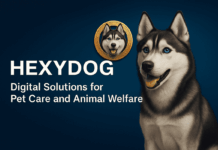Last Updated on November 13, 2023 by Dogs Vets
Are There Supply Chain Issues with Dog Food?
Navigating the Uncertainties of Pet Food Availability
In recent months, headlines have been circulating about potential shortages of dog food, causing concern among pet owners worldwide.
The COVID-19 pandemic and subsequent supply chain disruptions have undoubtedly impacted various industries, and the pet food sector is no exception.
While there may be some temporary fluctuations in availability, it’s essential to understand the underlying factors contributing to these concerns and how to navigate the current landscape responsibly.
Understanding the Root Causes of Supply Chain Disruptions
The pet food industry has faced a confluence of challenges that have led to supply chain disruptions. These include:
- Increased Demand for Pet Food: During the pandemic, many people adopted pets, leading to a surge in demand for pet food. This sudden increase in demand put a strain on the existing supply chain infrastructure.
- Labor Shortages: The pandemic also caused labor shortages across various industries, including transportation, manufacturing, and warehousing. These labor shortages have made it difficult to meet the increased demand for pet food.
- Ingredient Shortages: Pet food manufacturers rely on a variety of ingredients, including meat, grains, and vitamins. Shortages in these ingredients, caused by factors such as droughts and disruptions in agricultural production, have further complicated the supply chain.
- Transportation Challenges: The pandemic and ongoing global events have impacted transportation networks, leading to delays in shipments and increased costs. This has made it more difficult and expensive to get pet food from production facilities to retailers.
Impact of Supply Chain Issues on Dog Food Availability
As a result of these disruptions, some pet owners may have experienced difficulty finding their usual brand or type of dog food. In some cases, prices may have increased due to higher production and transportation costs.
However, it’s important to note that these issues are not uniform across all brands and retailers. Some companies have been better able to manage their supply chains and maintain consistent availability, while others have been more affected by the disruptions.
Strategies for Pet Owners to Manage Dog Food Availability
Despite the challenges, there are steps pet owners can take to manage their dog’s food needs during this time:
- Plan and Stock Up: While not hoarding, it’s a good idea to maintain a slight buffer of dog food in your home. This will help you avoid running out of food if there are temporary shortages at your usual retailer.
- Consider Alternative Brands or Formulas: If your usual brand is unavailable, be open to trying alternative brands or formulas that meet your dog’s nutritional needs. Consult with your veterinarian if you have any concerns about switching food.
- Monitor Supply Levels: Stay informed about the availability of dog food at your local retailers. Check their websites or social media pages for updates on product availability.
- Consider Subscription Services: Some pet food companies offer subscription services that can deliver dog food directly to your home. This can be a convenient option for pet owners who want to avoid the hassle of shopping for food regularly.
Communication and Transparency from Pet Food Companies
Pet food companies play a crucial role in communicating with pet owners about supply chain issues and product availability.
Transparency and clear communication can help alleviate anxiety and ensure that pet owners have the information they need to make informed decisions about their pets’ food needs.
Addressing Anxiety among Pet Owners Amid Supply Chain Disruptions
The ongoing supply chain disruptions have understandably caused anxiety among pet owners regarding their pets’ food availability. It’s important to address these concerns head-on and provide pet owners with accurate information and practical advice.
Understanding Pet Owners’ Concerns
Pet owners have legitimate reasons to be concerned about the potential for dog food shortages. Their pets rely on consistent nutrition to stay healthy, and any disruption in their food supply can cause significant worry.
Moreover, the emotional bond between pet owners and their pets amplifies these concerns, as the thought of not being able to provide for their furry companions can be deeply distressing.
Combating Anxiety through Informed Communication
Pet food companies and industry experts play a crucial role in combating anxiety among pet owners. Open and transparent communication about supply chain challenges and product availability is essential to alleviate concerns and build trust.
Regular updates on production capacity, transportation schedules, and potential shortages can help pet owners plan accordingly and make informed decisions about their pets’ food needs.
Providing Practical Guidance for Pet Owners
In addition to clear communication, pet owners need practical guidance on how to navigate the current landscape. Here are some key recommendations:
- Maintain Open Communication with Your Veterinarian: Your veterinarian is your best source of information regarding your pet’s nutritional needs and any potential health concerns related to food changes. They can also provide guidance on alternative food options if your usual brand is unavailable.
- Plan and Stock Up Responsibly: While hoarding is unnecessary, it’s prudent to maintain a slight buffer of dog food at home. This will help you avoid running out of food if there are temporary shortages at your usual retailer.
- Explore Alternative Brands and Formulas: Be open to trying alternative brands or formulas that meet your dog’s nutritional needs. Consult with your veterinarian if you have any concerns about switching food.
- Monitor Supply Levels at Local Retailers: Stay informed about the availability of dog food at your local retailers. Check their websites or social media pages for updates on product availability.
- Consider Subscription Services: Some pet food companies offer subscription services that can deliver dog food directly to your home. This can be a convenient option for pet owners who want to avoid the hassle of shopping for food regularly.
Supporting Mental Well-being of Pet Owners
Beyond addressing practical concerns, it’s also important to acknowledge the potential impact on pet owners’ mental well-being. The uncertainty surrounding dog food availability can cause stress and anxiety, especially for those who have limited resources or rely heavily on their pets for emotional support.
Pet owners should prioritize their own well-being during this time. Engage in activities that promote relaxation and stress reduction, such as exercise, meditation, or spending time in nature. Reach out to friends, family, or support groups for emotional support if needed.
Finally
The ongoing supply chain disruptions have presented challenges for the pet food industry and pet owners alike.
However, by fostering open communication, providing practical guidance, and prioritizing mental well-being, we can navigate these uncertainties together and ensure the continued availability of high-quality dog food for pets worldwide.
Frequently Asked Questions
- Will there be a long-term shortage of dog food?
It’s difficult to predict with certainty whether supply chain disruptions will persist in the long term. However, pet food companies are taking steps to improve the resiliency of their supply chains, and the industry is expected to adapt to the challenges.
- What are the best ways to conserve dog food during this time?
Measuring food portions accurately, avoiding overfeeding, and considering homemade treats as occasional supplements can help conserve dog food during this time.
- What should I do if my dog’s usual food is unavailable?
If your dog’s usual food is unavailable, consult with your veterinarian about suitable alternatives. They can help you find a food that meets your dog’s specific nutritional needs.
- How can I stay informed about supply chain updates?
Follow your favorite pet food brands on social media or subscribe to their newsletters to receive updates about product availability and supply chain developments.
Conclusion
While supply chain disruptions have impacted the pet food industry, it’s important to note that these challenges are not insurmountable.
Pet food companies are working diligently to address these issues and ensure the continued availability of high-quality dog food for pets worldwide.
By being informed, planning ahead, and communicating effectively with pet owners, we can navigate these uncertainties and ensure the well-being of our furry companions.
Fact Check
We strive to provide the latest valuable information for pet lovers with accuracy and fairness. If you would like to add to this post or advertise with us, don’t hesitate reach us. If you see something that doesn’t look right, contact us!























